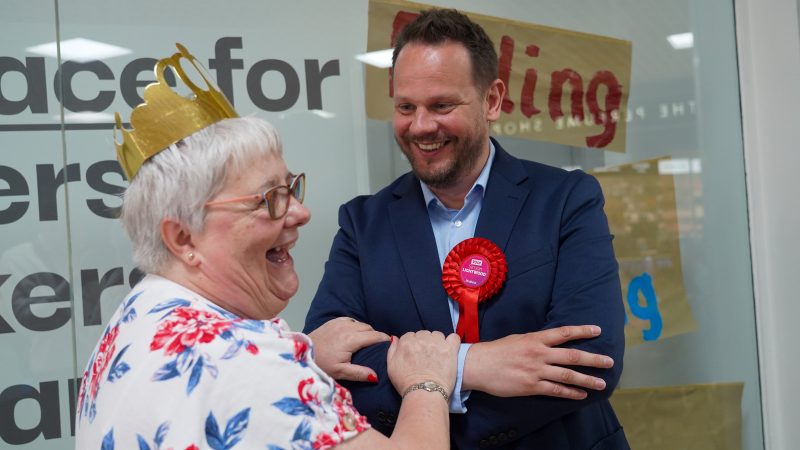
A by-election is a weird beast. Instead of a candidate running in a general election where parties can field up to 650 parliamentary hopefuls, a national spotlight is fixed on a particular contest. They are sometimes seen as referendums on party leaders or a certain issue – and the Wakefield by-election could easily be thought of as a referendum on the ‘partygate’ row that has engulfed Westminster over the past six months. But, according to Simon Lightwood, that is not the case.
I am sitting across from Lightwood, having a post-doorknocking cup of tea in his campaign office, as he reflects on what it has been like being under the national gaze. There is a buzz in the building as staffers and volunteers get on with the various jobs that need doing. The Labour candidate describes the campaign as a “strange experience”, adding: “I’m very aware that this result has national implications.” But, despite the national implications of the vote, he is adamant that this election is not a referendum on partygate or Boris Johnson.
The by-election was triggered by the conviction and then resignation of Imran Ahmad Khan. The disgraced ex-Tory MP was found guilty in April of sexually assaulting a 15-year-old boy in 2008. Unsurprisingly, Lightwood explains that residents are angry the Tories would “allow this person to stand in the first place”.
“They lost their voice,” the Labour candidate says. “And they’re really angry because there’s votes that have been happening recently around the cost-of-living rise, but we haven’t had a voice. There’s been no vote there. So I think it really is about giving Wakefield back its voice. It’s not a referendum on Boris Johnson, but I dare say that is also at the back of electors’ minds at the same time.”
Labour recently forced parliamentary votes calling for a windfall tax on oil and gas companies, to provide help to households facing rising costs, and demanding an emergency Budget to deal with the ‘cost-of-living crisis’. Both proposals were rejected by the government. Rishi Sunak and Boris Johnson later U-turned on the windfall tax – but these debates, and others relating to the crushing pressures facing people across the country, have taken place without a voice from Wakefield.
The cost-of-living crisis prompts “echoes” from Lightwood’s past: “When we growing up, we did have a tough time. Money was in short supply, always,” he says. “I remember my mum really trying to shield us from that and do the best they can with very limited money, but ultimately we lost our house.” He recounts how he moved into his grandmother’s house, with seven people living in a two-bedroom house.
“I can feel what it was like then to know that your family is struggling, and to be without hope – or losing hope of ever getting a home. We did in the end, we luckily we got a council house two years later but that’s never really left me.”
Lightwood is clear: voters in this election are focused on the fact that they have had no voice in Westminster, at a time when the UK is experiencing its highest inflation rate in four decades. The cost-of-living crisis, and the sense that people are without a say in how the government responds, outweighs the scandal caused by the Prime Minister breaking his own lockdown rules. As the vote of confidence taking place this evening demonstrates, Johnson will not be in post forever. The trauma caused by the cost-of-living crisis, as people struggle to heat their homes and put food on the table, will have a far more enduring legacy – beyond this by-election.


More from LabourList
‘National flags and identity can be inclusive – we’re right to embrace them’
Revealed: Claims of bullying, misogyny and harassment in Young Fabians
‘Sunak’s claim of a ‘sick note culture’ is immoral and deeply flawed’